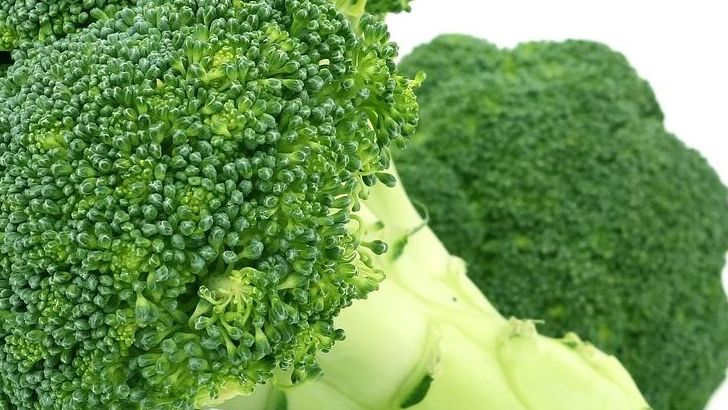Fresh Leafy Greens – Nature’s Nutrient Powerhouse

According to the U.S. Department of Agriculture, one cup of raw spinach has only 7 calories but provides 121% of the vitamin K a man should consume each day and 161% of the amount recommended for women. The amount of vitamin K in spinach is about twenty times more than iceberg lettuce, about five times more than broccoli and eight times more than cabbage. This incredible nutrient density makes fresh leafy greens like spinach, kale, and arugula absolute nutritional superstars that lose significant value when processed. Even a small amount of fresh herbs can double or even quadruple the antioxidant power of a meal. Fresh leafy greens maintain their delicate phytochemicals and water-soluble vitamins that processing often destroys. Processing of any type also reduces the nutrient content, and may even strip away those vital antioxidants that support immune health and protect cells from damage. Given research is still identifying additional health-promoting compounds in fresh fruits, vegetables, and whole grains. When you buy pre-washed, pre-cut greens, you’re getting convenience but sacrificing nutritional potency. One small study found that eating a half-cup of frozen spinach every day for two months increases lutein levels and eye pigment. High pigment levels may lower your risk of macular degeneration. However, fresh spinach provides even higher levels of these protective compounds when consumed shortly after purchase.
Berries – Fresh Antioxidant Bombs

Berries are an incredibly nutrient-dense food that help prevent and fight disease. They’re loaded with beneficial antioxidants like anthocyanins, ellagic acid, and resveratrol, and they’re super high in gut-healthy fiber too. When you buy berries frozen, you reduce food waste and save money. While frozen berries certainly retain many nutrients and offer excellent value, fresh berries deliver peak antioxidant power that diminishes over time. The antidiabetic effects of blueberries may be due to their polyphenols and anthocyanins. According to the 2024 article, research suggests that blueberry consumption may offer benefits for heart health. A 2024 review highlights the potential anticancer effects of blueberries, which may link to anti-inflammatory and antioxidant properties. These powerful compounds are most concentrated in fresh berries that haven’t undergone any processing or storage that could degrade their delicate structure. Fresh berries also provide optimal fiber content and natural sweetness without added sugars commonly found in processed berry products. The 2024 review suggests that research associates lower blood pressure with regularly eating blueberries. It suggests that blueberry consumption may help relax blood vessels and improve blood flow. The bioavailability of these beneficial compounds is highest when berries are consumed fresh and at peak ripeness.
Broccoli – The Cruciferous Cancer Fighter

The pharmaceutical importance of broccoli is widely known as antimicrobial, antioxidant, anticancer, immunomodulator, antidiabetic, hepatoprotective, cardioprotective, and anti-amnesic. Fresh broccoli stands out as one of the most important vegetables to buy fresh because its powerful sulfur compounds, particularly sulforaphane, are extremely sensitive to processing and heat. Research suggests that sulforaphane, found in broccoli, may help reduce inflammation by inhibiting the activity of certain enzymes that promote inflammation in the body. It has also been found to stimulate the production of antioxidant enzymes that protect cells from inflammation-related damage. These compounds begin breaking down immediately after harvesting and are further reduced through processing methods like blanching and freezing. In the majority of comparisons between nutrients within the categories of fresh, frozen, and “fresh-stored”, the findings showed no significant differences in assessed vitamin contents. However, the unique bioactive compounds in broccoli that provide its cancer-fighting properties are best preserved in fresh form. Broccoli contains about 3 times more vitamin C than spinach. Broccoli contains 89.2mg of vitamin C, while spinach contains about 28mg. This vitamin C content is highest when broccoli is consumed fresh and properly stored.
Fresh Herbs – Concentrated Flavor and Medicine

Even a small amount of fresh herbs can double or even quadruple the antioxidant power of a meal. Fresh herbs like basil, cilantro, parsley, and mint are among the most concentrated sources of antioxidants and volatile oils that provide both incredible flavor and significant health benefits. These delicate compounds are virtually impossible to preserve through drying or other processing methods. Herbs and vegetables can positively reduce inflammation due to their high content of phytochemicals, antioxidants, and other bioactive compounds. The essential oils in fresh herbs contain antimicrobial and anti-inflammatory properties that are lost when herbs are dried or processed. Fresh herbs maintain their cellular structure, which allows for maximum release of beneficial compounds when consumed. The volatile compounds responsible for the intense aromas and flavors of fresh herbs are the same ones providing therapeutic benefits. A major benefit of fresh food is avoiding potentially harmful chemicals and preservatives used to keep food items on the shelves for longer. The Environmental Working Group has identified various food additives of concern that consumers should be aware of. Fresh herbs require no preservatives or additives, providing pure plant medicine in its most potent form. Beyond their nutritional superiority, fresh herbs offer culinary advantages that processed versions simply cannot match. The amazing flavor of fresh, unprocessed food is undeniable. Once your taste buds have adjusted to real food, processed junk food simply can’t compare. This enhanced flavor naturally encourages you to eat more nutrient-dense meals, creating a positive cycle of healthier eating habits. While frozen and processed foods certainly have their place in a balanced approach to eating, prioritizing fresh versions of these four grocery items – leafy greens, berries, broccoli, and herbs – can significantly boost your nutrient intake and overall health. These fresh foods provide optimal bioavailability of essential nutrients, maximum antioxidant power, and superior flavor that makes healthy eating more enjoyable and sustainable.






